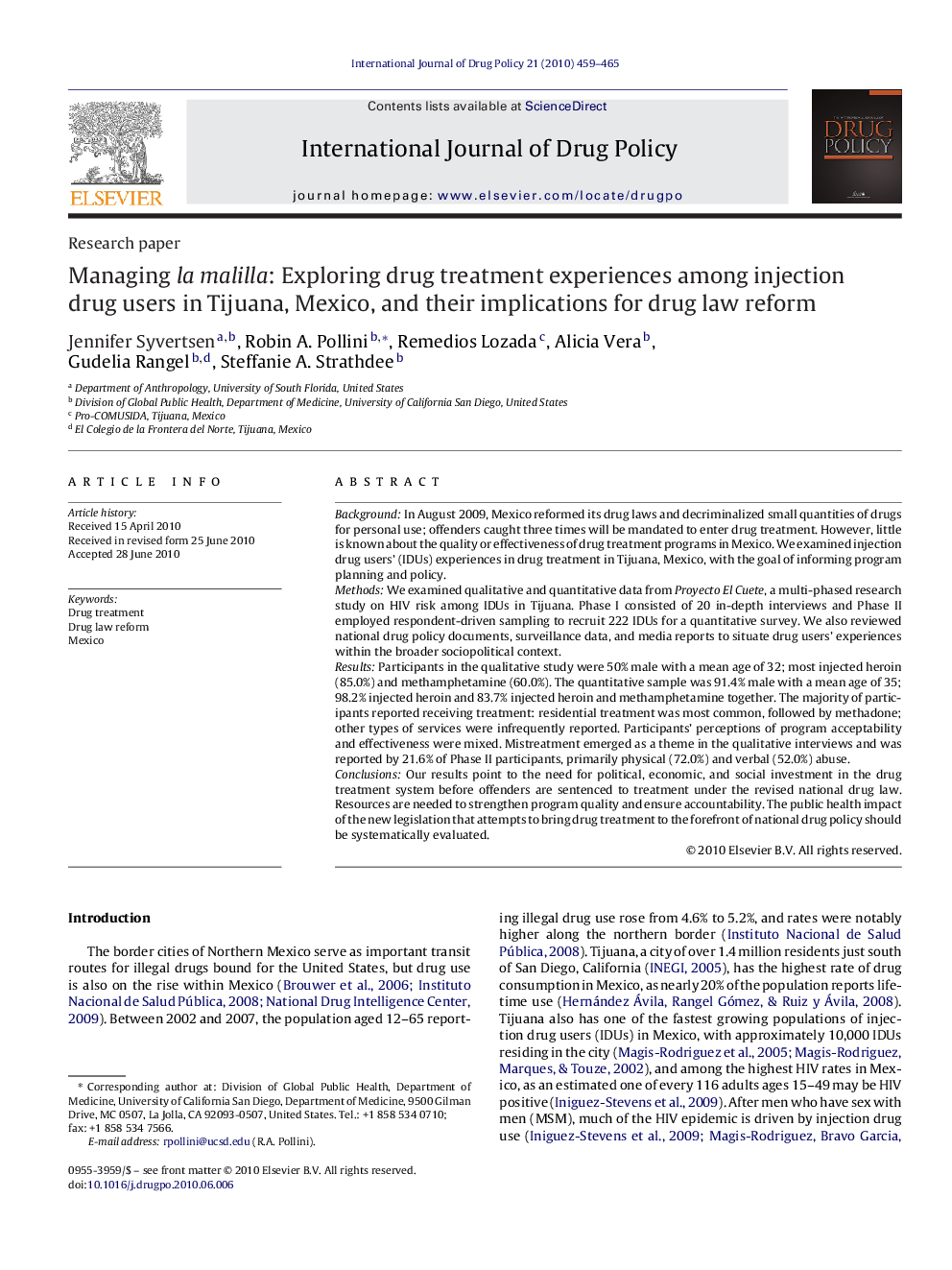| کد مقاله | کد نشریه | سال انتشار | مقاله انگلیسی | نسخه تمام متن |
|---|---|---|---|---|
| 1075183 | 1486316 | 2010 | 7 صفحه PDF | دانلود رایگان |

BackgroundIn August 2009, Mexico reformed its drug laws and decriminalized small quantities of drugs for personal use; offenders caught three times will be mandated to enter drug treatment. However, little is known about the quality or effectiveness of drug treatment programs in Mexico. We examined injection drug users’ (IDUs) experiences in drug treatment in Tijuana, Mexico, with the goal of informing program planning and policy.MethodsWe examined qualitative and quantitative data from Proyecto El Cuete, a multi-phased research study on HIV risk among IDUs in Tijuana. Phase I consisted of 20 in-depth interviews and Phase II employed respondent-driven sampling to recruit 222 IDUs for a quantitative survey. We also reviewed national drug policy documents, surveillance data, and media reports to situate drug users’ experiences within the broader sociopolitical context.ResultsParticipants in the qualitative study were 50% male with a mean age of 32; most injected heroin (85.0%) and methamphetamine (60.0%). The quantitative sample was 91.4% male with a mean age of 35; 98.2% injected heroin and 83.7% injected heroin and methamphetamine together. The majority of participants reported receiving treatment: residential treatment was most common, followed by methadone; other types of services were infrequently reported. Participants’ perceptions of program acceptability and effectiveness were mixed. Mistreatment emerged as a theme in the qualitative interviews and was reported by 21.6% of Phase II participants, primarily physical (72.0%) and verbal (52.0%) abuse.ConclusionsOur results point to the need for political, economic, and social investment in the drug treatment system before offenders are sentenced to treatment under the revised national drug law. Resources are needed to strengthen program quality and ensure accountability. The public health impact of the new legislation that attempts to bring drug treatment to the forefront of national drug policy should be systematically evaluated.
Journal: International Journal of Drug Policy - Volume 21, Issue 6, November 2010, Pages 459–465